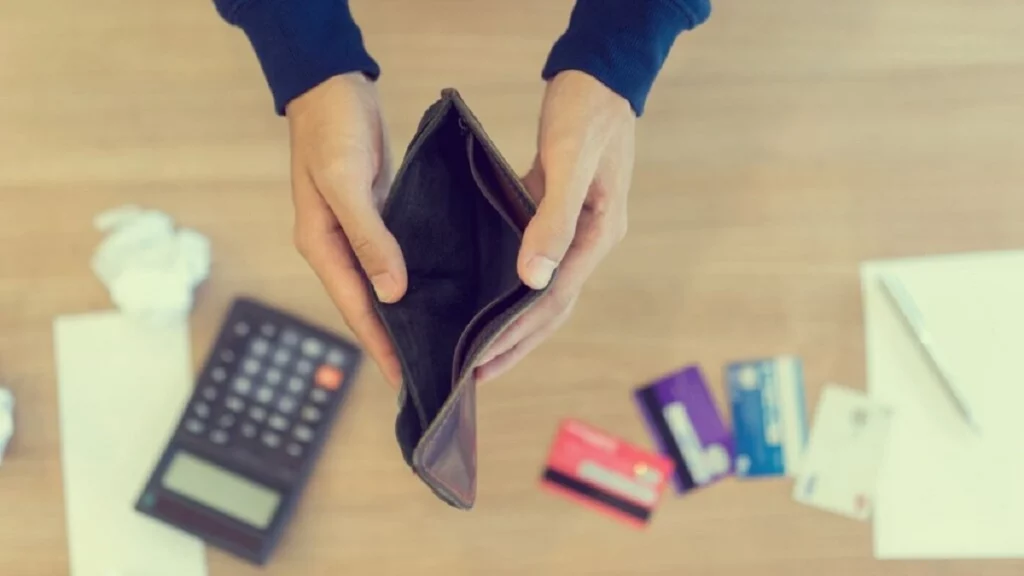If you are in financial difficulty, then there are several options available to you. Two of these options are bankruptcy or an IVA (Individual Voluntary Arrangement). As with all solutions to debt there are benefits and consequences to both and you need to be aware of these so that you can make an informed decision.
Both are legal processes that can write off some or all of your debt. This means they offer protection from your creditors taking further action against you to recover a debt. However, each of these solutions will affect different areas of your life, so you must think carefully about what’s important to you before deciding which one to take.
Employment:
A debtor’s employment could be affected by either process, but there is a greater chance of an employer becoming aware of their employee’s insolvency if they enter bankruptcy rather than an IVA.
Both an IVA and bankruptcy are included in Individual Insolvency Register but, bankruptcy is also advertised in The Gazette. This means that there is greater publicity with bankruptcy compared to an IVA.
Not all job roles will be affected by either option but there is a greater likelihood of encountering difficulties if you are a senior manager or a director in a business. Some industries where insolvency might cause a problem are:
- Law and property roles
- Finance and accountancy roles
- Pub licenses.
The best way to find out if an IVA or bankruptcy would impact your job is to check with your professional membership body or trade union or ask to speak to your HR department confidentially.
Bankruptcy is more likely to affect your job than an IVA, and in both cases it’s more likely to cause a problem if you work at a senior level.
It’s important to check if your job will be affected, but according to Stepchange most jobs are not.
Will I lose my business with an IVA or bankruptcy?
Bankruptcy for business owners:
This is another situation where you may want to consider an IVA over bankruptcy. Your business will be shut down if you declare bankruptcy. Any assets your business holds will be handed over to the official receiver, and they will decide what to do with the lump sum raised.
Whether this is a big deal or not depends on what you do and what types of assets are associated with your business. If, for example, you are self-employed as a virtual assistant and work out of your home office, you may have no major issues starting over, and bankruptcy may work fine.
IVAs for business owners:
An IVA may be a better solution for business owners. Unlike with bankruptcy, your Insolvency Practitioner will have no claim over you company or assets if you decide on an IVA.
Your business will be able to continue trading, your business bank account will remain open, and an IVA allows company directors to remain in their position – so long as you both keep up with payments and continue to take your Insolvency Practitioner’s advice.
How will an IVA or bankruptcy affect my home?
IVAs and bankruptcy will have different impacts on your home, and this will depend on whether you rent or own it.
- If you rent your home during an IVA:
- If you rent your home, an IVA should have no effect, and it’s very unlikely you’ll need to move.
- If your rent your home and go bankrupt:
- If you go bankrupt, you can usually stay in the same property if your rent is up to date.
However, some private landlords include a condition in the tenancy agreement which means you could be asked to leave if you go bankrupt or take out an IVA. You could also lose your home if you have rent arrears when you go bankrupt.
If you own your home during an IVA:
You won’t be forced to sell your home, but you might be asked to remortgage it six months before the end of your IVA. You’ll only have to remortgage if it’s affordable, and if you can’t, you might have to either pay an extra 12 months of payments into the IVA, or raise money from a third party instead.
If you own your home and go bankrupt:
If you’ve got equity in your house it’s very likely that the official receiver (who deals with your bankruptcy) will make you sell it. If there isn’t any equity in it, you may be able to keep it.
However, the official receiver does have two years and three months to decide what to do with it and this means that if the house if it goes up in value during this time you could be asked to sell it.
Getting a bank account
When a debtor enters an IVA and the bank is one of their creditors, the bank may have the ‘right to offset’ their debt against the bank account, if there is a credit balance available. For this reason, it may be advisable for the debtor to open a new account prior to the IVA commencing, so that wages can be paid in and ongoing bills paid.
In the case of bankruptcy, the bank will freeze the debtor’s bank account, so that any credit balance can be claimed by the trustee for the benefit of creditors. This can cause an issue if the account is jointly-held, so it’s advisable for the joint holder to open a new account prior to the bankruptcy procedure commencing.
It may also be preferable for the person entering bankruptcy to open a new account if possible, to ease their own financial management once the bankruptcy order takes effect.
In both cases, a debtor’s access to a new bank account will be limited. Some banks offer basic accounts for those in serious debt, however, allowing money to be paid in but preventing access to credit. You can find a useful article on basic bank accounts and who offer them from the Money Saving Expert.
How long will each take?
Ordinarily bankruptcy is much quicker than an IVA; you will usually be discharged from bankruptcy after 12 months. However, you may have to make payments from your income into the bankruptcy for 3 years depending on whether you can afford to do so. Your home may also be sold in bankruptcy if there is equity in the property.
However, if the Official Receiver or the Trustee in Bankruptcy deems that you have not properly carried out your duties under the bankruptcy proceedings or if you’re found to have acted carelessly or dishonestly you could face the ongoing restrictions of bankruptcy for between 2 and 15 years.
An IVA typically lasts five years – however the arrangement could be extended by 12 months if you have a property and you are unable to release your share of equity for the benefit of your creditors.
Essentially, in bankruptcy you will risk any property or assets but it will be a quicker solution than an IVA.
What do an IVA and bankruptcy have in common?
There are a few things that an IVA and bankruptcy have in common, regardless of which one you go ahead with. They would both:
- Be recorded on your credit file for six years from the date they begin. While this information is on your credit file you may find it difficult to take out any further credit
- Mean that your name is entered on the Individual Insolvency Register. This is an online database of everyone who’s gone bankrupt or been in an IVA or debt relief order. This record is not permanent, and will be removed three months after the solution ends
- Write off your debt. Because an IVA and bankruptcy are insolvency solutions you’ll either get the balance of your debt written off when the IVA is completed or you receive your discharge from bankruptcy
- Mean that you stop getting any further contact from your creditors. IVAs and bankruptcy are formal debt solutions which means that once they’re up and running, your creditors aren’t allowed to contact you by letter or on the phone to recover money from you
To summarise:
Consider Choosing an IVA When …
- You own a home, vehicle, or other assets you can’t bear to lose.
- You own your own business and the requirement that you start over with a bankruptcy would cost you your livelihood.
- You have a job which you may lose if you declare bankruptcy.
- You have power of attorney or are applying for it.
Consider Choosing Bankruptcy When …
- You have no important assets you are afraid to lose.
- You either work for someone else or you are self-employed with a business that is easy to restart.
- You have a job you are not afraid of losing (most jobs are secure even with bankruptcy).
- You don’t have a lot in the way of spare income, or your situation is highly unstable.
- You want things to be over fast so you can start over as quickly as possible.
What to do next:
Research – It is highly important that you make sure you make an informed decision. If you want to know more about bankruptcy or an IVA then please visit our website https://thedebtadviceservice.co.uk/ or call us on 0800 254 5112 and speak to a member of our team who will provide you with more information on the options available to you.

